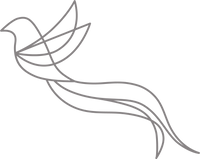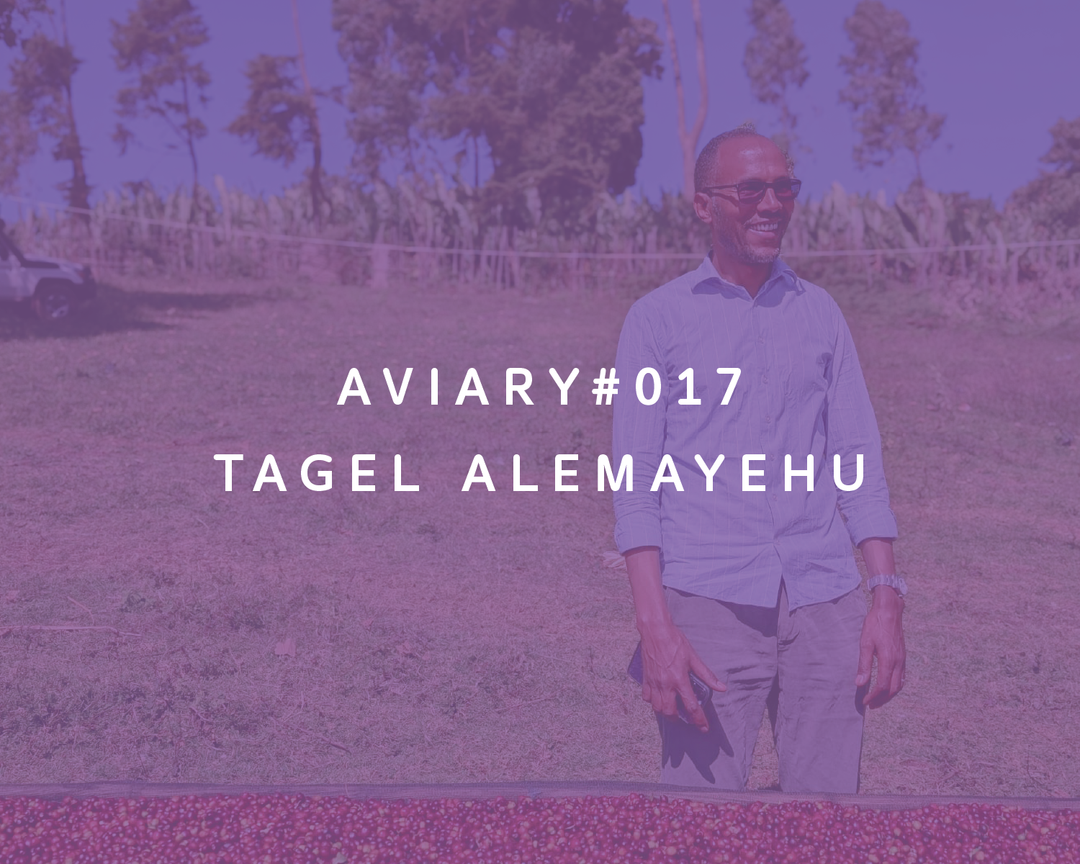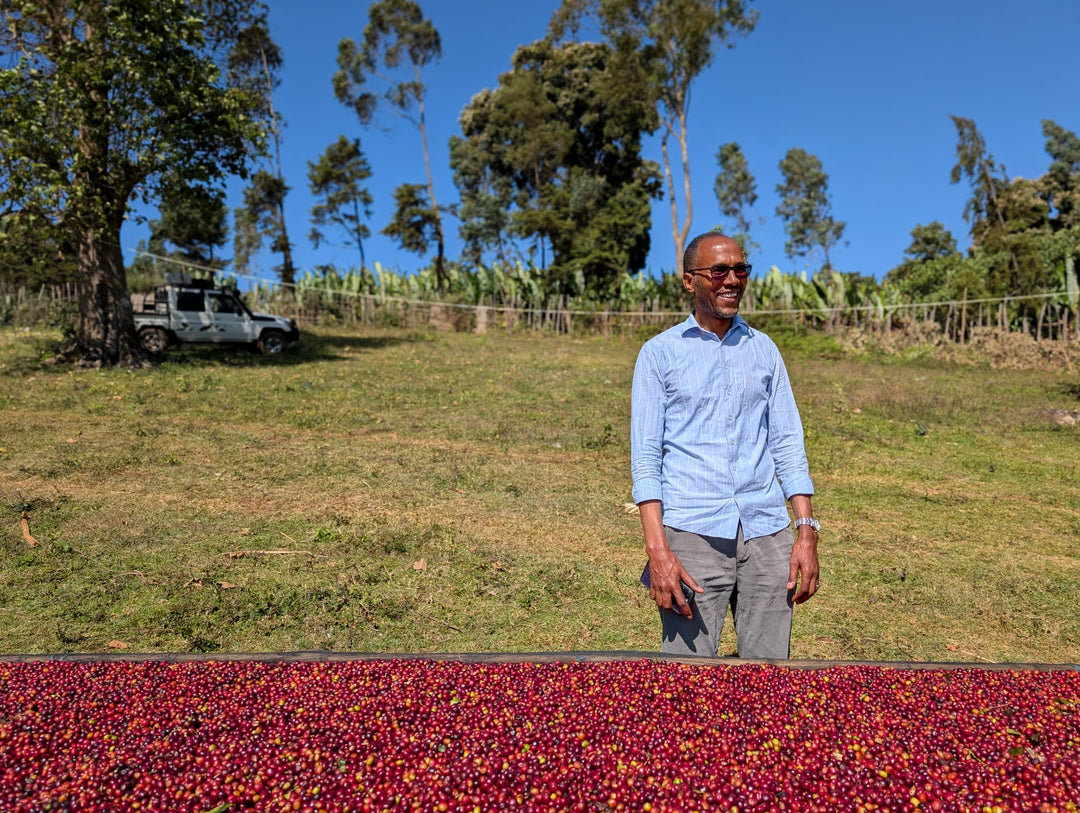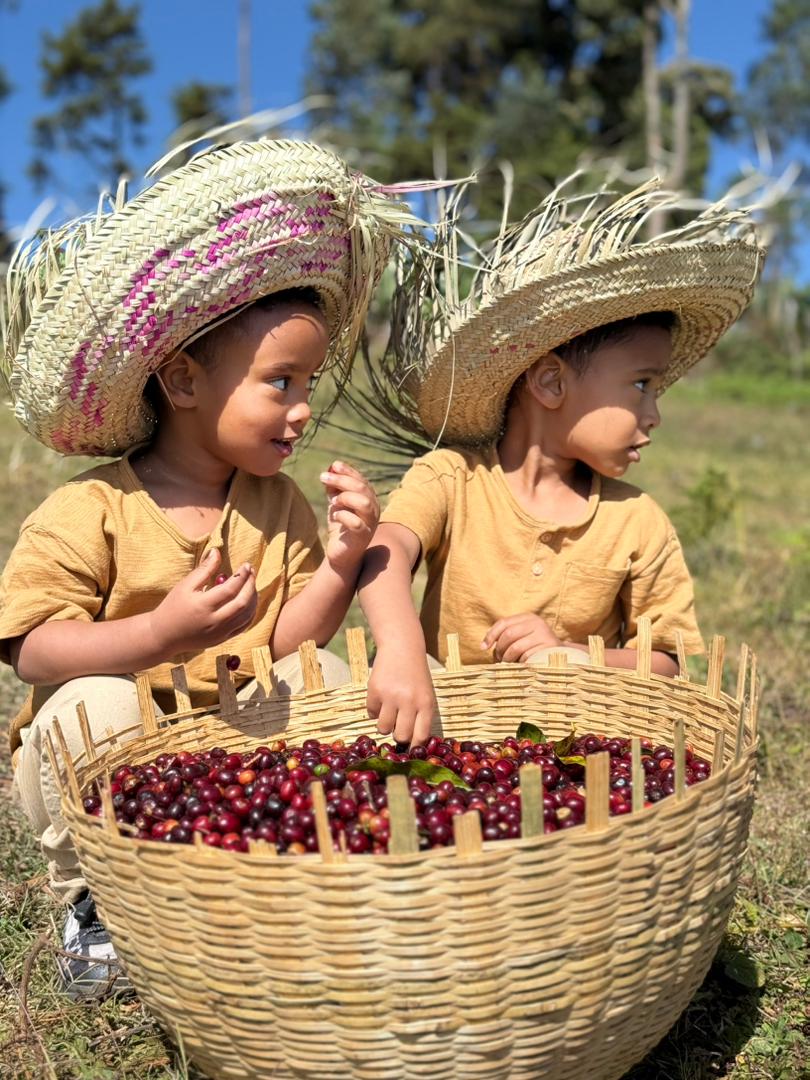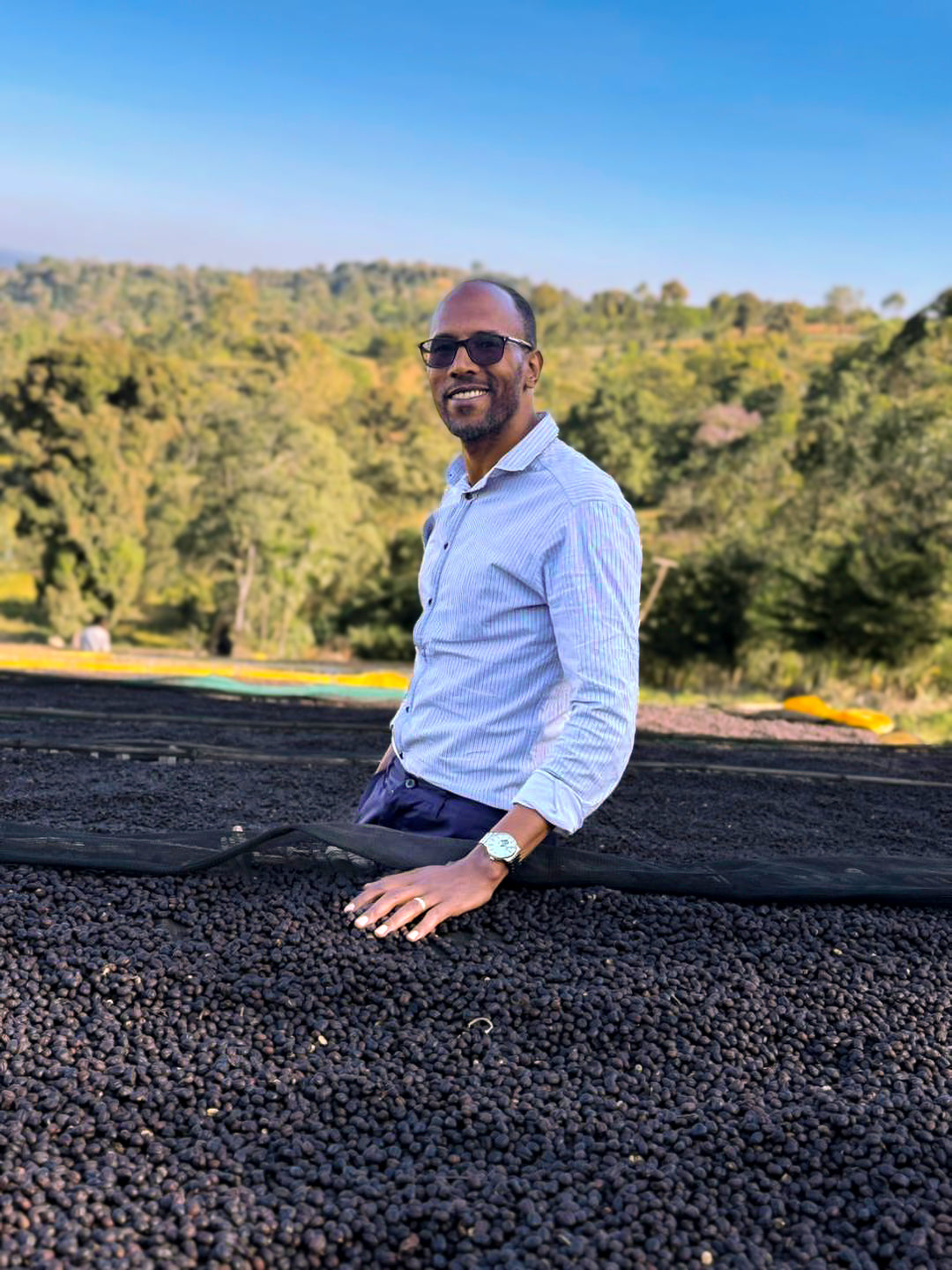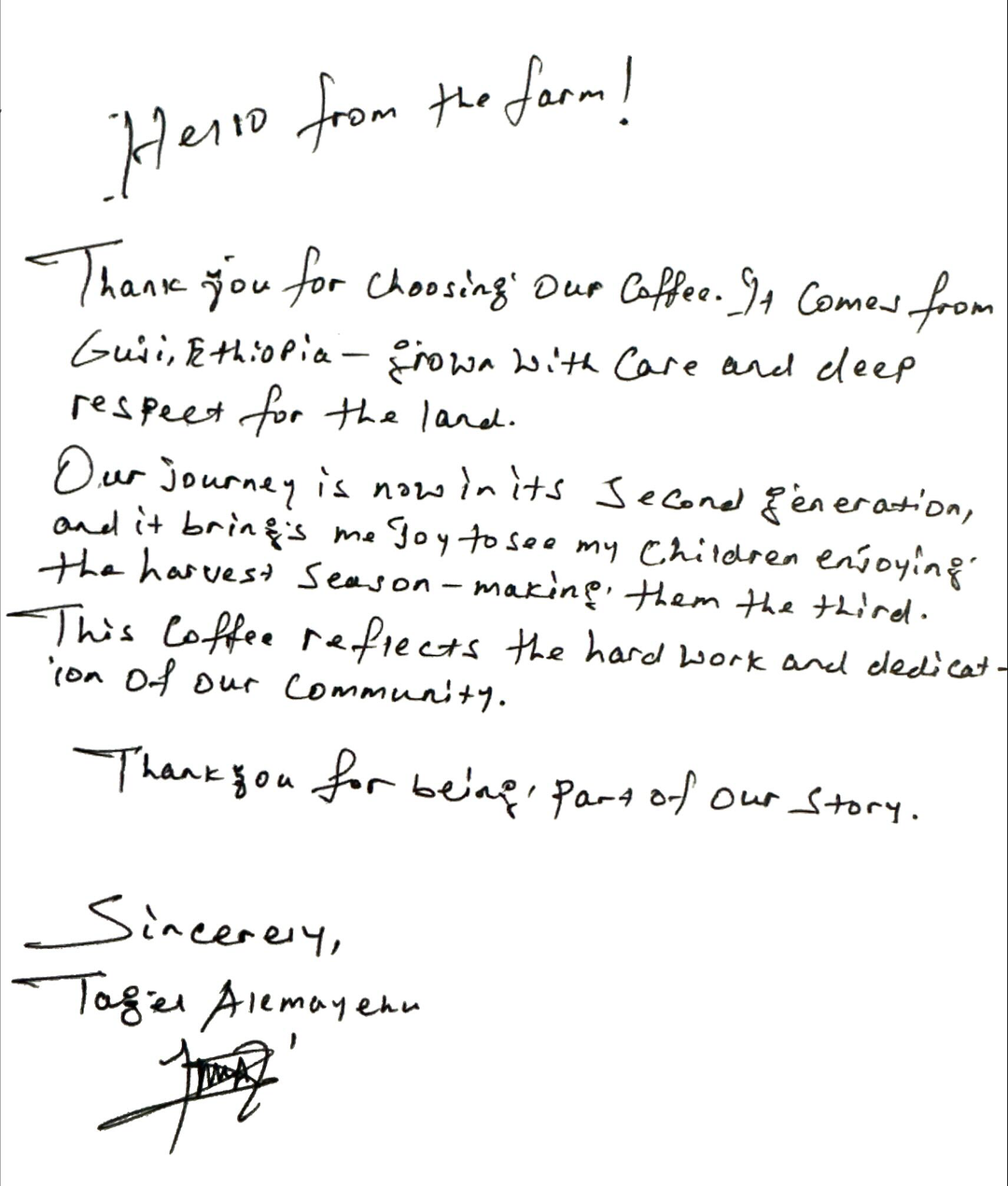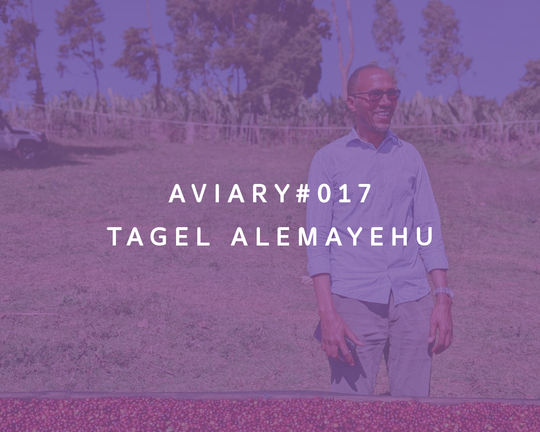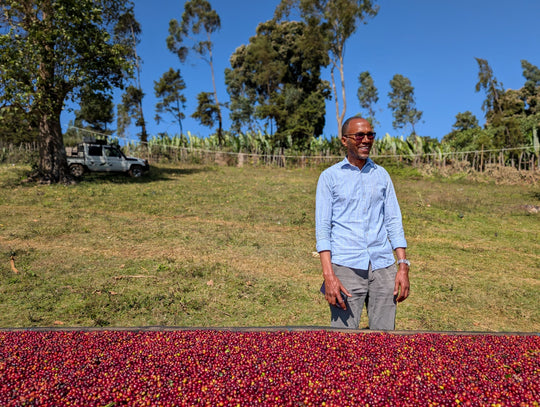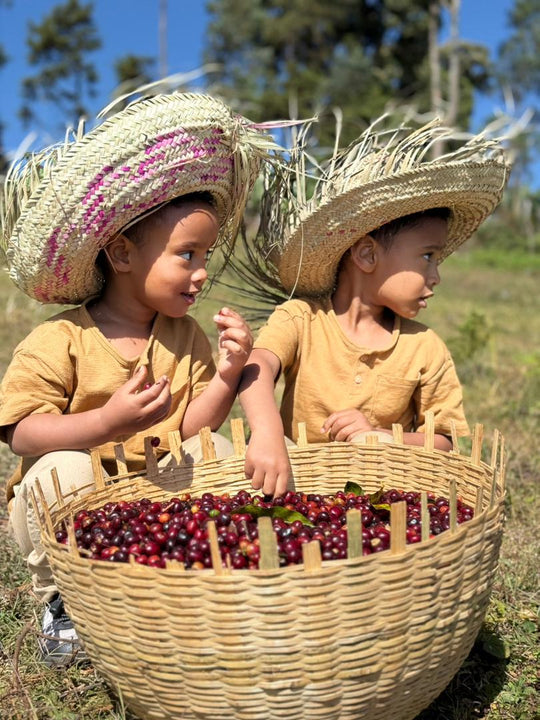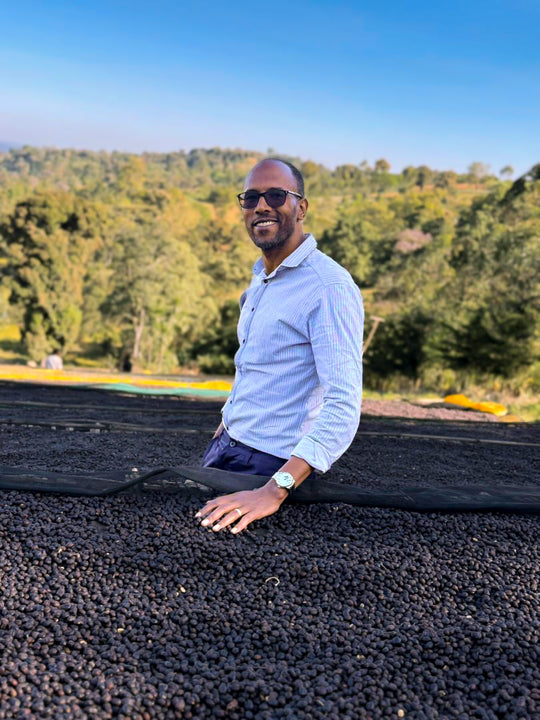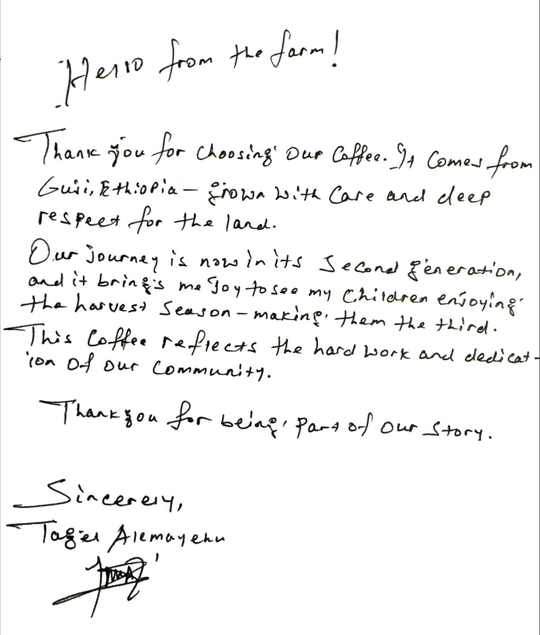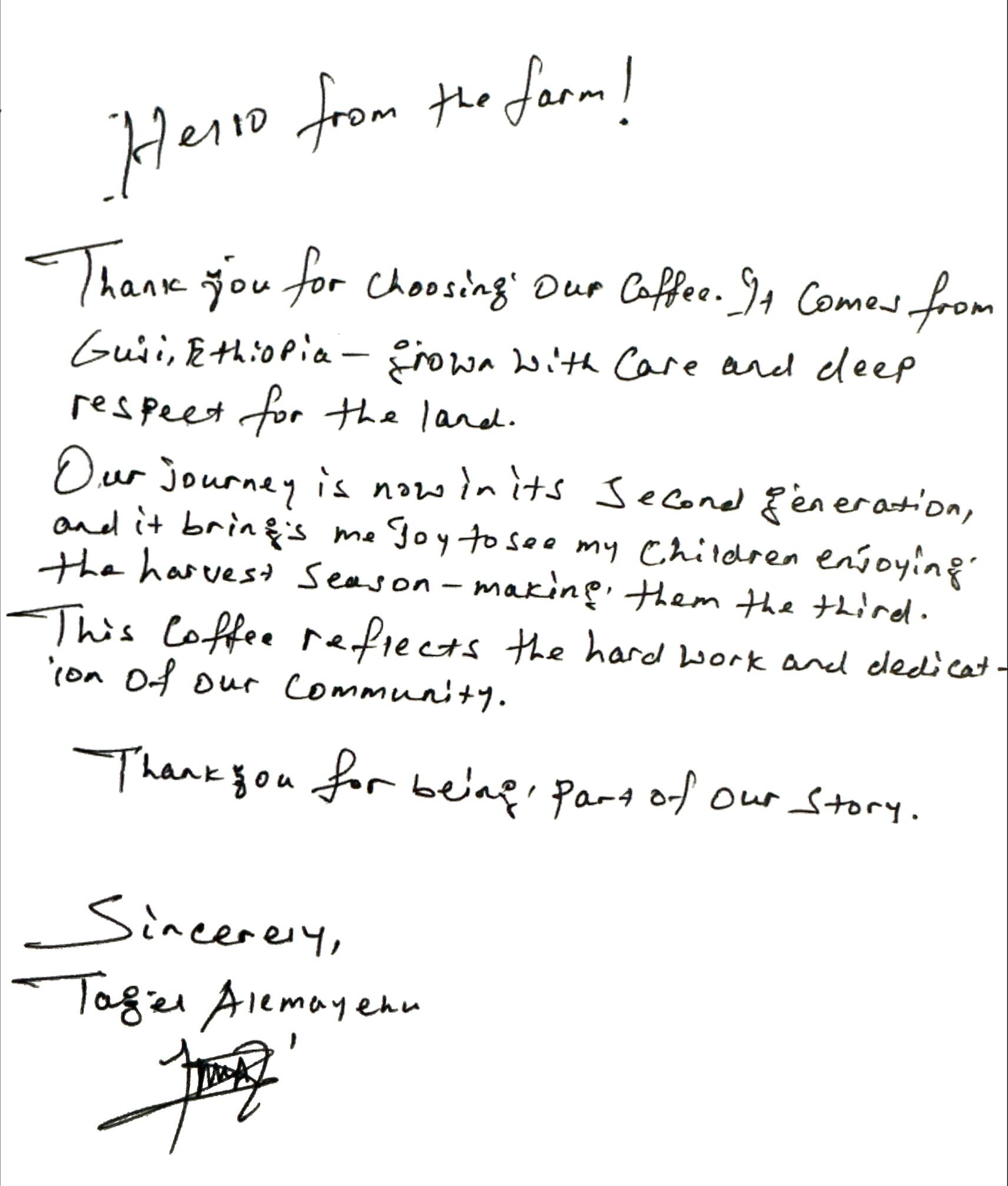017 - Tagel Alemayehu
- Free U.S. shipping
2025 FREEZER SALE UPDATE (2025-12-17):
From Christopher: Without exception, of the several hundred I cupped, this was my favorite washed coffee to come out of Ethiopia in 2025—enough said. I'm thrilled to roast it again and chose to roast in a slightly lighter style than its original release to allow the expressiveness and complexity of this coffee to shine.
The eighth coffee of our 2025 season takes us to Goro, Hambela, Ethiopia, where Tagel Alemayehu operates a washing station and processes cherry from approximately 130 registered smallholder outgrowers. This washed coffee—two years in the making—comes from a two-week separation from peak harvest and presents in the cup acid-forward with sweet, structured stonefruit notes.
From Christopher: "I first visited Tagel Alemayehu's station in Hambela in December 2023. That year, I'd hoped to contract a container of washed coffee from the station for Crop to Cup's 2024 import, but back then, the station wasn't operating; finance issues and a foreign currency shortage made overproduction of coffees—particularly washed coffees, which under Ethiopia's coffee regulations must be exported—risky for exporters like Tagel.
"And so the motor sat silent; the grassy hillside, covered during normal seasons with hundreds of raised beds, sat empty. A washing station at 2350 meters at the top of the hillside—chilly and windy even in the dry season—didn't make any coffee.
"Private washing stations dot Southern Ethiopia like clover—enterprises designed to produce volumes of coffee efficiently and move it to export, often through vertically-integrated channels—and I don't normally buy from them. From financial transparency and traceability of cherry to the way that outgrowers are paid, the interests and motivations of private washing stations owner rarely align with my own.
"But in Tagel, I saw not only alignment but a tale that inspired those in the community we spoke with—that redemption, through hard work, can follow misfortune. Tagel grew up in Hambela, the son of a coffee supplier who built the largest milling business in the Blue Hora area. When the coffee market collapsed, his father lost his business to the bank. Tagel worked as an accountant and cherry collector for export companies, learning the business, and built his reputation for precision and savvy while saving the money he earned—enough to buy his father's mill back from the bank.
"Eventually, he returned home to Hambela and built this station in Goro, where he hopes to bring his own children up in the coffee business.
"On the road leaving the station during that first visit, we'd seen a farmer bringing cherry up the road on our way in and stopped him to ask who he was selling it to: he beamed, proudly, telling us that he was selling it to Tagel. In a year when competition for cherry meant that ripeness and cherry selection was a challenge across the country, the cherry brought by this farmer gleamed bright-red. While the common practice in private washing stations is to offer a single payment to producers on delivery of cherry, Tagel registers the producers he buys from and provides a second payment at export—like cooperatives do—incentivizing growers to not only sell cherry to him but treat their coffee with the same care in picking that he promised to undertake in processing and marketing.
"While we weren't able to buy coffee from Tagel that year, we asked that he'd stay in touch—and to please let us know if he planned to make washed coffee at his station in Hambela.
"And he did: We returned to the station a year later, in December 2024—Moata riding shotgun in Tagel's car, Tagel flexing the reflexes he steeled in his youth as a race circuit driver, rocketing at 90kmph up the mountain with U2's "Songs of Innocence" clanging through the car's unimaginably bad speakers. When we got to the top of the mountain, the station's motor whirred; the beds were full.
"This coffee, a reward after two years of effort, is a small part of a two-week separation representing peak harvest bursting with complexity, stonefruit and acidity presenting in the cup with sweet notes of just-ripe Alphonso mango, tangerine, peach and pink lemonade."
This coffee was roasted the week of June 23, 2025 and again on December 18, 2025.
TASTING NOTES: Vibrant tropical and stonefruit notes of apricot, peach and just-ripe alphonso mango highlighted with jasmine and pink lemonade
ROAST: Light, to accentuate the structured acidity and florality of this coffee and present its fruited character as ripe and juicy
ACIDITY: Structured, fruited, juicy and bright acidity
FUNK: This is a very clean, juicy coffee with no funk presenting during our evaluation
FOR FANS OF: Resiliency and stories of redemption; high-grown traditional washed Ethiopians; smallholders; self-determination
FARMGATE PRICE: 75-85 birr per kg (initial payment) plus second payment at export (4 birr per kg)
FOB PRICE: $4.80 per lb
LANDED PRICE: $6.05 per lb
This lot was produced with cherry collected during a two-week period in December 2024 from the cooperative's 1814 members; exact traceability is available as each delivery is recorded and registered not only for initial payment (in birr per kg) but also for distribution of a divided or second payment following export should the cooperative be profitable. As of December, approximately 500 of the registered members had delivered cherry to the highest elevation site.
The initial payment to members upon delivery is based on the local pricing; at the time of our visit, this was 90 birr per kg of cherry. While this is higher than in years past, as a result of the currency devaluation in July 2024 stemming from preconditions placed in the loan package from the IMF accepted by the Ethiopian government, this farmgate price represented a decrease in the total percentage value of the export price relative to previous years. Floating the currency was meant to align the exchange rate with black market rates, disincentivizing the black market exchange of currency and bringing more foreign currency into circulation as a way to solve the ongoing foreign currency shortage. Calculated using an exchange rate of 126.87 birr per kg (higher than last year's official rate of 57 or black market rate of 95-100), the farmgate price translates to roughly $1.93 per pound, or 40.2% of the export price.
From the remaining sum, the cooperative funds its staff (such as its general manager, industry manager and the 76 full-time workers at Site 01) and activities related to export (financing, dry milling, transportation, shipping). The cooperative received financing from the cooperative bank for the 2024-2025 season, enabling higher production overall and thus leading to anticipated profits. For the 2023-2024 season, the cooperative paid a dividend of 5 birr per kg.
Inflation reported by the government was 17%, down from the previous year (28%), but the effects of currency devaluation made inflationary effects feel more acute. Financing challenges meant that if they were willing to give agricultural loans at all banks assessed the value based on last year's export, in birr—regardless of devaluation. This meant that there was less financing available for purchasing cherry, suppressing the competition for cherry seen in previous years. Regardless, cherry prices ranged from 75-115 birr per kg through the season, reflective of devaluation and continued demand for USD, even as the South saw a larger-than-expected harvest.
The price the cooperative received ($4.80 per pound FOB) was higher than the C-market price ($3.26), even amid a record-breaking run, and was higher than the government's published minimum registration price ($4.51), the premium reflecting the quality of the coffee as well as a commitment to paying above long-term costs of production.
The high delta between FOB and landed price can be explained both through an increase in financing costs for 2024-2025 associated not only with a higher C-market but also higher risk, higher prime rates and an industry-wide liquidity crunch; payment to CoQua, Crop to Cup's exclusive partner in Ethiopia; and transportation via the Red Seas using MSC.
Kurume (selection 74110 and 74112) coffee grown using organic methods at 2,300-2,400 masl in Goro, Hambela by 412 registered smallholders; selectively hand-picked at peak ripeness; sorted; floated; pulped using a McKinnon disc pulper and graded by density; fermented under water for 48-52 hours in open concrete tanks; washed and graded using traditional channels; dried on raised beds for 9-10 days, covered at full sun; conditioned in piles in the warehouse for 14 days.
I recommend resting this coffee for 3-5 weeks from its roasted date filter brewing and 5-6 weeks for espresso-style preparation (though you may wish to try it earlier to enjoy how the coffee changes and opens over time).
As filter, I prefer a ratio of 1:17 using low-agitation methods of extraction resulting in 22-23% EY.
